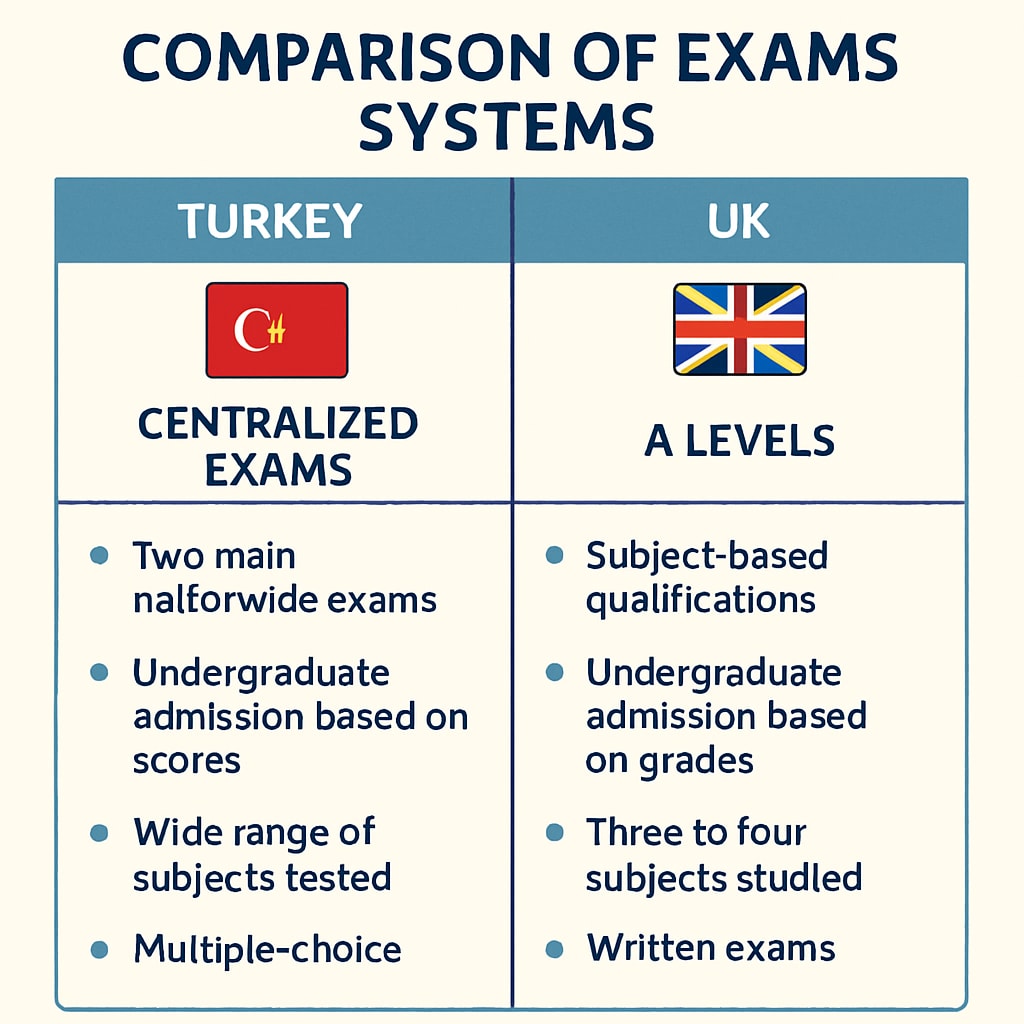The exam-driven nature of Turkey’s education system has long been a source of concern for educators, students, and parents alike. With centralized exams determining critical outcomes such as university placements, this system places immense pressure on students while often stifling their broader developmental potential. Comparisons with the UK’s A Level system, which emphasizes subject specialization and critical thinking, underscore the need for Turkey to adopt a more holistic approach to education. However, such transformative change cannot occur without unwavering support and strategic planning from high-level decision-makers.
Exam-Driven Systems: A Comparative Analysis
Turkey’s centralized exam system revolves around high-stakes testing, such as the Higher Education Institutions Exam (YKS), which serves as the gatekeeper for university admissions. These exams demand rigorous preparation, often leading to an intense focus on rote memorization rather than fostering creativity or critical thinking. By contrast, the UK’s A Level system offers students a choice of subjects, encouraging deeper engagement with areas they are passionate about. This structure promotes a balance between academic performance and personal development, reducing the undue stress often associated with high-stakes exams.

Furthermore, the A Level framework allows students to specialize in a few subjects, enabling them to explore their interests and develop expertise. In Turkey, the centralized exams often force students to excel in a broad range of topics, even those unrelated to their future aspirations. This mismatch between student capabilities and exam requirements contributes to the overwhelming pressure many Turkish students experience.
The Impact of Exam Pressure on Students
Excessive exam pressure in Turkey has far-reaching consequences. Students often report symptoms of stress, anxiety, and burnout due to the competitive nature of the system. Additionally, the narrow focus on exam preparation leaves little room for extracurricular activities, critical thinking, or personal growth. For example, studies conducted by Britannica highlight the importance of educational systems that prioritize holistic development, which is largely missing in Turkey’s current framework.

In addition to mental health concerns, the exam-driven system creates a rigid pathway for students, limiting their academic choices and career opportunities. A more flexible approach, such as the UK’s A Level system, could help students pursue their passions while reducing the psychological toll of high-stakes testing.
High-Level Support: The Catalyst for Change
For Turkey to transition from its exam-centric education model to a more balanced system, high-level support is essential. Policymakers must recognize the limitations of the current framework and commit to strategic reforms that prioritize student well-being and holistic growth. This includes reallocating resources toward teacher training, curriculum redesign, and the implementation of assessment methods that value critical thinking and creativity over rote memorization.
In addition, collaboration with international education experts could provide valuable insights into effective reform strategies. For instance, the UK’s A Level system has undergone continuous evolution to meet the needs of modern learners. Learning from such global models could help Turkey create a system that aligns with both its cultural values and the demands of a rapidly changing world.
Conclusion: A Call to Action
Turkey’s exam-driven education system is at a crossroads. While the centralized exam model has long been entrenched in the country’s educational framework, its limitations are becoming increasingly apparent. Comparing Turkey’s system with the UK’s A Level approach reveals a clear need for reform that prioritizes student well-being and academic freedom. However, meaningful change requires dedication and strategic planning from high-level decision-makers. By addressing these challenges, Turkey has the opportunity to redefine its education system and empower its students for a brighter future.
Readability guidance: This article uses short paragraphs and clear headings to improve readability. Descriptive comparisons and external references enhance the depth of analysis while maintaining an accessible tone. The placement of images provides visual context for key points.


